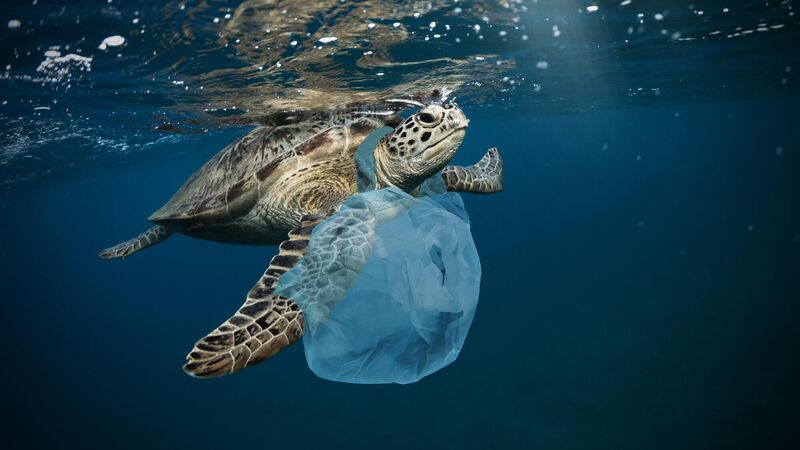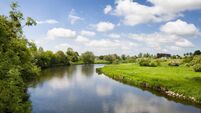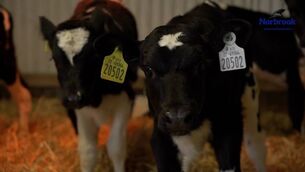Island nation engages with Clean Oceans Initiative

Ireland is an island nation with a coastline of 7,500km and a marine territory extending far beyond that to 880,000km2, an area more than ten times our landmass.
In Ireland, 1.9 million people live within 5km of the coast and many communities along the Irish coast depend on industries such as tourism, fishing and aquaculture.
Contamination in the marine environment is not a new phenomenon with marine plastic pollution being one of the most prevalent threats to fish and marine wildlife. Given the substantial increase in plastic production and poor waste management facilities in some low to middle-income countries, there is a significant influx of waste into our oceans.

Documentaries such as BBC’s Blue Planet II have opened our eyes and raised public awareness of the detrimental effects of marine plastic. Total World production of plastics reached 359 million metric tonnes in 2018. Up to 80% of marine debris is made up of plastics, with over 45% of the dumped plastics comprising abandoned or broken fishing nets which can continue to ‘ghost fish’ long after they are discarded.
These plastics are not biodegradable, but instead they photo-degrade, breaking up from recognisable items of all sizes and shapes into tiny particulates which pose a substantial risk to marine life. There is also a well-documented link between the environmental health of fish stocks and the economic health of fishing communities.
The importance of a healthy marine environment for the sustainability of our marine ecosystems and seafood sectors is more apparent than ever. The Minister for Agriculture, Food and the Marine decided to take action to remove as much plastic as possible from our marine waters. Irish fishermen have been living in harmony with the ocean since the beginning of time and have a key role to play in recovering this discarded plastic.
Fishing vessels are towing nets through the waters around our coast daily and often find debris, including waste plastics, when the nets are hauled.

In January 2019, the Minister for Agriculture, Food and the Marine launched the ‘Clean Oceans Initiative’ which is Ireland’s first co-ordinated initiative on land and at sea to collect, reduce and reuse marine litter and clean up our marine environment. The Minister set a target for a 100% participation rate of Irish trawlers in the initiative.
The new Programme for Government seeks to support and build upon what has been achieved to date and commits to “aggressively tackle the issue of waste, ghost nets and illegal dumping in the marine environment through rigorous implementation of the Port Reception Facilities Directives and by requiring all Irish Fishing Trawlers to participate in the Clean Oceans Initiative ,ensuring that plastic fished up at sea is brought ashore.”
The Minister for Agriculture Food and the Marine, Dara Calleary, T.D., said: “ I am very supportive of the Clean Oceans Initiative and heartened by the high levels of participation by the Irish Fishing Fleet in this Initiative. Fishermen have a huge interest in removing plastic from the Ocean and I want to see all trawlers participating in the Initiative as we move forward.”
Bord Iascaigh Mhara (BIM), Ireland’s Seafood Development Agency, has been working with the fishing industry for several years to tackle the pollution in our marine environment and is the lead agency in relation to matters of marine litter. BIM is actively working with the fishing industry to achieve 100% participation in the initiative.
The Fisheries Producer Organisations, which represent the majority of Ireland’s trawling fleet, have endorsed the Clean Oceans Initiative and encouraged their members to sign up and get involved. At April 2020, 244 fishing vessels with a total of 1,169 crew members had signed up, with 12 ports registered and actively involved in the initiative.
By the end of March 2020, approximately 426 tonnes of marine plastic waste had been collected from 12 of Ireland’s busiest fishing ports along with shore and pier cleans by their aquaculture counterparts
This means that 96% of Irish trawlers are signed up to the Clean Oceans Initiative. By the end of March 2020, approximately 426 tonnes of marine plastic waste had been collected from 12 of Ireland’s busiest fishing ports along with shore and pier cleans by their aquaculture counterparts. This is a very positive sign that the fishing and aquaculture sectors are taking action to tackle the issue of marine litter.
Funding to support this Initiative has been made available under Ireland’s European Maritime and Fisheries Fund (EMFF) to provide on-board storage facilities and onshore infrastructure for environmentally friendly disposal of all plastics, waste, ghost fishing gear, etc. recovered at sea. Onshore infrastructure is also available to fishermen to dispose of unwanted fishing gear and other items with a plastics content. DAFM is the managing authority for the EMFF in Ireland.

In addition to the “Clean Oceans Initiative”, the Minister for Agriculture, Food and the Marine asked Bord Iascaigh Mhara to assemble a collaborative team representative of all stakeholders to focus on solutions for marine litter prevention and removal. The team will include fishermen and fish farmers, net makers, harbour authorities, fish processors, community groups, Fisheries Local Action Groups (FLAGs), academics and NGOs. This is an ongoing process and aims to be in place by early 2021.
Bord Iascaigh Mhara is currently working with the fishing and aquaculture industry to: Investigate and support ways to reduce the seafood sector being a source of marine litter, improve on-board waste management practices whilst out at sea, increase awareness amongst the fishing industry about the impact of marine litter on the marine environment, collectively share and report the commitments of the catching sector to support marine litter reduction, investigate recycling opportunities for fisheries and aquaculture generated plastics, ensure that the fishing and aquaculture sector are informed on the implementation of the single use plastics and port reception facilities directives.
Protecting our oceans is one of 17 Global Goals that make up the 2030 Agenda for Sustainable Development. Ireland’s commitment to Goal 14, Life below water is reflected in the enthusiasm shown towards the Clean Oceans Initiative.
BIM is a Sustainable Development Goal (SDG) Champion 2019-2020 and as such is tasked with raising awareness of the SDGs within the fisheries and aquaculture sectors through linking programmes including the Clean Oceans Initiative to the Goals and showcasing the role that fishermen, aquaculture farmers and the wider coastal community play in protecting the ocean and reducing marine litter.












